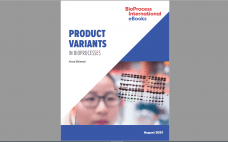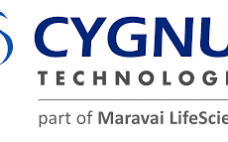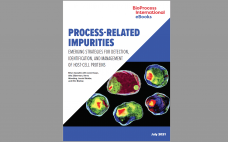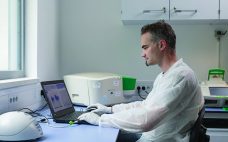Product variants are contaminants because they bear properties that are different from those of desired biological products with respect to activity, efficacy, and safety. Thus, such variants can compromise product quality and consistency. In this eBook, Yuval Shimoni explores different types of variants — including primary-sequence variants, undesirable posttranslational modifications, aggregates, and degraded proteins — and explains how their presence can diminish the performance and quality of drug substances and products. He also discusses how product variants form at different…
Analytical
Model-Based Process Monitoring of Algae Cultures Using eve Software
In bioreactor processes, the on-line monitoring of key parameters relies on the use of adequate sensors. In this article, we implement model-based software sensors to monitor nitrate concentrations in an algae batch process. Nitrate concentration is a crucial component in algae growth, and its assessment is used to achieve optimal growth conditions or to determine optimal harvest times. Batch cultivation of the algae Chlamydomonas reinhardtii is carried out in a Labfors 5 airlift photobioreactor provided by INFORS-HT. By means of…
PendoTECH Sensors and Industry 4.0: Integrating a PendoTECH Single-Use Sensor System with a Digital Highway
Biopharmaceutical manufacturing is evolving with the progression of Industry 4.0. Industry 4.0 refers to the ongoing “fourth industrial revolution,” which is transforming modern manufacturing and production practices through the use of “smart” technology. This is appealing especially to the biopharmaceutical industry, where production can be a long, meticulous, complex process, and optimizing manufacturing procedures is critical for success. As a leading supplier of single-use technology for the biopharmaceutical industry, PendoTECH recently has explored how its products can be integrated easily…
Your Partner for Host Cell Protein Analytics for Over 25 Years
Cygnus Technologies, part of Maravai LifeSciences, is the biopharmaceutical industry’s partner in host cell protein (HCP) and other process-related impurity detection and analytics. In addition, Cygnus now provides innovative viral clearance solutions. Cygnus helps companies developing therapeutic proteins, vaccines, antibodies, plasma derivatives, and gene therapies ensure the safety of their biotherapeutics before human trials, regulatory approval, and commercial release. Cygnus provides analytical tools and solutions for improving bioprocess development for faster regulatory approval and better clinical outcomes. Cygnus is an…
Scalable, Real-Time Bioprocess Monitoring Solution: Kaiser Raman Technology and Sartorius BioPAT Spectro Yield Value from Early Process Development to Single-Use Manufacturing
Raman spectroscopy is used in biomanufacturing as a process analytical technology (PAT) tool for making rapid, nondestructive, in-process measurements. However, Raman data collection at early stages of bioprocess development has been a challenge because of the lack of interface to bioreactors <250 mL. Realizing the industry was struggling to capitalize on the full potential of Raman spectroscopy, Kaiser Optical Systems, Inc. (Kaiser), an Endress+Hauser company, collaborated with Sartorius to bring Raman to Ambr 15 microbioreactors (10–15 mL) and Ambr 250…
eBook: Process-Related Impurities — Emerging Strategies for Detection, Identification, and Management of Host-Cell Proteins
Host-cell proteins (HCPs) represent a major class of process-related impurities (PRIs) that are generated during biopharmaceutical manufacture. Although the vast majority of such proteins are removed from a drug substance during downstream purification, residual HCPs can remain in a finished drug product. Even in minimal concentrations, copurifying HCPs can pose safety risks and compromise protein-product yield, efficacy, and stability. Thus, regulatory agencies consider the presence of HCPs to be a critical quality attribute (CQA). Sufficient clearance of these impurities helps…
Contractor Perspectives: Best Practices for Transfer, Handling, Testing, and Storage of Cell Banks
For comments about how contract development and manufacturing organizations (CDMOs) manage their cell-banking quality assurance (QA) practices. I contacted long-time member of BPI’s Editorial Advisory Board Scott M. Wheelwright, PhD, for his perspectives. Wheelwright brings many years of experience to this discussion, with insights into the evolution of technologies and practices extending back to the early launch of the biopharmaceutical industry. Currently, he provides consulting support for companies with manufacturing and sourcing in China and other Asian countries. He also…
Measuring Viral Titer in AAV-Mediated Gene Therapy Using a PCR Technique for Absolute Quantitation
Gene therapies have reemerged as promising treatments to a number of genetic illnesses. Nearly 400 gene therapy clinical trials are recruiting or ongoing in the United States for diseases such as hemophilia and spinal muscular atrophy (1). The primary vehicles used today to deliver such therapies to patients’ cells are viral vectors such as adenoassociated viruses (AAVs), but producing biologically active vectors for gene therapy can be problematic. One difficulty is generating vectors at the correct concentration to yield a…
Analytical Methods for Cell Therapies: Method Development and Validation Challenges
Advanced-therapy medicinal product (ATMP) characterization and analysis play important roles in providing chemistry, manufacturing, and controls (CMC) information for regulatory applications as well as in supporting product-release and stability studies. Each type of advanced therapy presents different analytical development challenges, so each requires specific characterization, potency, purity and identity assays. Variability in cells and among patients, multiple and complex mechanisms of action (MoAs), a general lack of readily available reference materials, and complicated analytical methods and instruments underlie the major…
The Promise of Artificial Intelligence in Healthcare
The term artificial intelligence (AI) has become pervasive in conversations about the future of healthcare. AI has the potential to transform medicine through novel models of scientific discovery and healthcare delivery, ultimately leading to improved individual and public health. Yet misunderstanding and miscommunication abound. Thus, concepts related to AI need to be defined and explained to elevate our general level of understanding and our discourse around the topic. The Promise of AI in Healthcare AI has been studied by computer…









